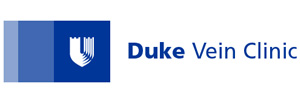Endovenous ablation is used to close abnormal surface veins, especially ones that are large, long, and straight.
An ultrasound guides the placement of a laser fiber or radio frequency device into the abnormal vein. Then the laser fiber or radio frequency device delivers heat to scar the abnormal vein shut.
Alternatives to endovenous ablation may include surgical removal of the veins or sclerotherapy (medical injections).
Prepare for Your Procedure
Although it is an outpatient procedure, your endovenous ablation is a real surgical procedure. This means that you must arrive on time, and provide us with a phone number where you can be reached throughout the day, as the schedule is subject to last-minute changes.
You should plan to be available throughout the entire day in case of a schedule change. We will try to accommodate your requests for the time of the procedure as best we can, but if you cannot be reached in case of a schedule change, your procedure may need to be rescheduled.
Before the surgery remember to:
- Arrive 30 minutes before your endovenous ablation will begin.
- Give the clinic your home and cell phone numbers so they can call to confirm the appointment.
- Be on time and available or your appointment may be rescheduled.
- Bring your insurance information.
- Bring a friend who can walk with you following the procedure and drive you home.
- Bring your prescription compression stockings.
- Drink plenty of fluids the day before and the day of the procedure; you may eat lightly.
- Try to stay warm and, if possible, exercise before the procedure to make your vein as large as possible.
- Take a shower and wash your leg with antibacterial soap the day of the procedure.
- Most patients receive Valium before the procedure to relax them.
Post-Surgical Instructions
- Wear your compression stockings continuously for seven days after the ablation. You may remove them to shower.
- You can remove the bandages the day after your endovenous ablation.
- Walk frequently and for at least 40 minutes per day.
- Take 400-600mg of ibuprofen (Advil, Motrin) every six hours with food for seven days unless you have a history of stomach ulcers or gastrointestinal bleeding. This medicine reduces pain, swelling, and bruising and will speed up your recovery. Take it even if you are not having pain.
- Avoid hot baths, strenuous exercise, and weight lifting for seven days after the procedure.
- Plan to be off work the day of the procedure because you will be under the influence of Valium.
- Don’t be alarmed if you have some bruising, swelling, lumpiness, and fluid leakage after your procedure for a week or two. Between seven and 10 days after the procedure, many patients experience a tightening, pulling, or pain along the treated vein.
- Call 919-660-8346 if you develop severe pain, severe swelling, significant bleeding, numbness in your feet or toes, chest pain, shortness of breath, or fever over 101.5ºF.
- Most patients report a significant improvement in their vein symptoms within a few days.

